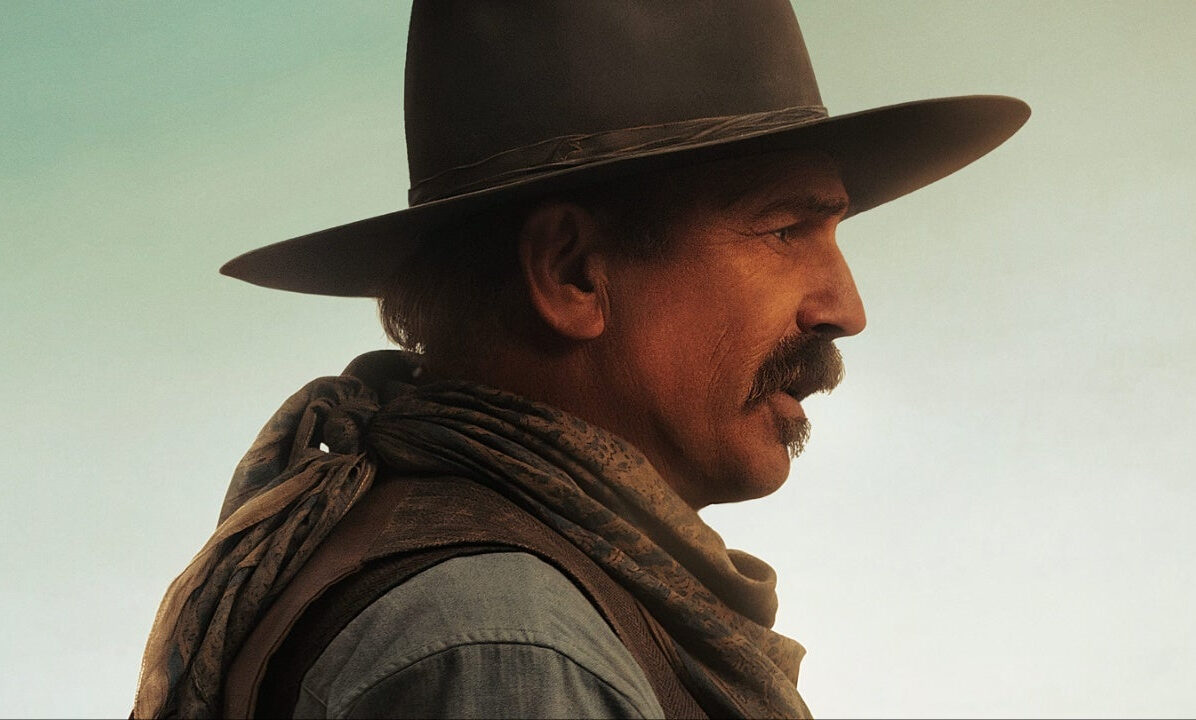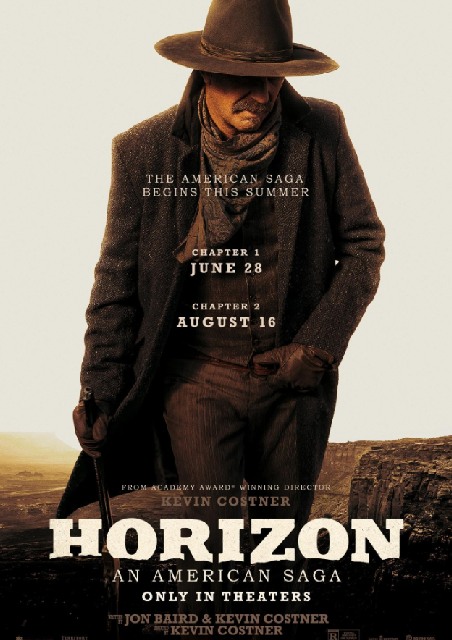“I believe in telling this story”: Kevin Costner and cast on Horizon: An American Saga – Chapter 1

The first instalment of Kevin Costner’s new epic Western blazes onto our screens this weekend, and The Upcoming were able to hear from him and the film’s cast at the global press conference. Set in the Civil War era, Horizon: An American Saga is a project so ambitious that the award-winning actor-turned-director has split the story into four chapters. Costner seeks to cover the settlement of the American West in all its vastness, while granting audiences an emotional and fully fleshed look into the lives of families and enemies alike.
Sienna Miller, Sam Worthington and Giovanni Ribisi star alongside Costner himself, as well as an extensive ensemble cast who bring the entire thing together to create a detailed experience.
Costner is the birth of this saga. Directing, writing and acting in it, it’s clear that this is a story he yearned to tell. He knew that this story needed the space of essentially 12 hours in order to be considered complete, despite what might be desired at the box office. He told us, “When I do a story, I don’t wanna stop until it’s finished. And when I look at it, I try to understand what it was. And it was really a journey. It’s not a plot movie. And so, it was four. And, you know, my idea was not to wait to see if the first one was successful. I believe in telling this story. The only way this is successful, in my mind, is that it’s complete.”
The female characters in Horizon are far from shallow depictions. Miller described Frances as a “survivor” and “courageous”, and argued that to not include women in the story of America would be “disingenuous”. She went on to praise Costner for creating these “incredible characters”. Abby Lee backed this up, highlighting his “strong leadership qualities” and his passion as both director and actor.
Ella Hunt and Isabelle Fuhrman both talked about how much it meant to them that Costner believed they could carry the characters of Juliette and Diamond on the intense journeys they go through. Fuhrman highlighted her appreciation that all the women in Horizon are so distinctive. She said, “They all face their own struggles and make decisions based on fear or love.” Later, Miller talked more about the real stories that these women are based on, saying that she and Fuhrman both “read the diaries of women on the Oregon Trail” and told the others how amazing they were.
One of the most important aspects of the production of this film is the casting of Indigenous actors to tell the intimate stories of the First Nations. Wase Chief explained how, with the help of a coach, the Native cast were able to learn the real White Mountain Apache language. Tatanka Means added that this process was “super difficult”. He was happy to do it though, and explained how he was thankful to Costner for casting enrolled tribal members, as often the roles of their people are taken by people who only claim to have Indigenous ancestry: “We lose important roles like that that help us in our careers. So to have this blessing to go in there and portray the Apache people and to work with them one on one, with Aurelia and the dialect coaches was important to us because we’re Native.”
The authenticity of Native representation is exceedingly important, and something Costner was keen to nail: “It seems obvious. And it makes for a better movie. You can’t have the Western story unless you have the First People’s story.” Tatanka Means expanded on the emotional connection this has and said, “We want to hear our language spoken correctly and not butchered, you know. It brings pride to us. And not only to the Apache people, but to all the Indigenous Native people, you know, in North America to see your language and hear it on the big screen.”
It was important to Costner that it’s made clear that the stories of Native Americans are deep and diverse, and not explored as much as they should be. “It can’t ever be minimised,” he implored.
Another vital piece of Horizon were the sets themselves. Audiences are treated to sweeping landscapes under burning suns and violent winds, and the actors experienced this environment first-hand. The enormity and beauty of it, as Jena Malone pointed out, meant the terrain became “another character […], omnipresent”. She described her peers as “atmospheric creatures”, making the point that actors “can’t help but be influenced by the surroundings”, Jamie Campbell Bower, nodding his head in total agreement, added that “it elevates the performance”.
As momentous as this movie is,as all-encompassing a voyage, one of the things the cast really hails as impressive about Horizon is its attention to detail, and its admission that the decisions people were making on a day-to-day basis were far from simple. As Fuhrman explained, “It really was a time where every single decision you made, you didn’t know if it was going to affect everyone around you.”
Costner uttered a memorable line about how he envisages the opening of his saga: “I’m gonna get to the gunfight, I promise,” he said, “but I love what happens in between.” The “in-between” is what makes these characters so magnetic. Costner and the cast took a moment to shout out the behind-the-scenes team who added so much to the story. Jimmy Muro the cinematographer, Derek Hall on sets and Lisa Lovaas on costumes were “handing [them] [their] performances,” Costner said. Rooker talked of the period-accurate wardrobe and how impressive it was. “Our craftspeople were above and beyond. They were the greatest,” he said.
Horizon: An American Saga has been an incredibly long ride for Kevin Costner. For him, and for the cast, this is a movie that’s made to be revisited, a movie that demands attention and a movie that was a memorable joy to be a part of. Indeed, Rooker goes as far as to say that “cinema is back. So, thank you, Kevin.”
Talitha Stowell
Horizon: An American Saga – Chapter 1 is released nationwide on 28th June 2024.
Watch the trailer for Horizon: An American Saga – Chapter 1 here:
























Facebook
Twitter
Instagram
YouTube
RSS